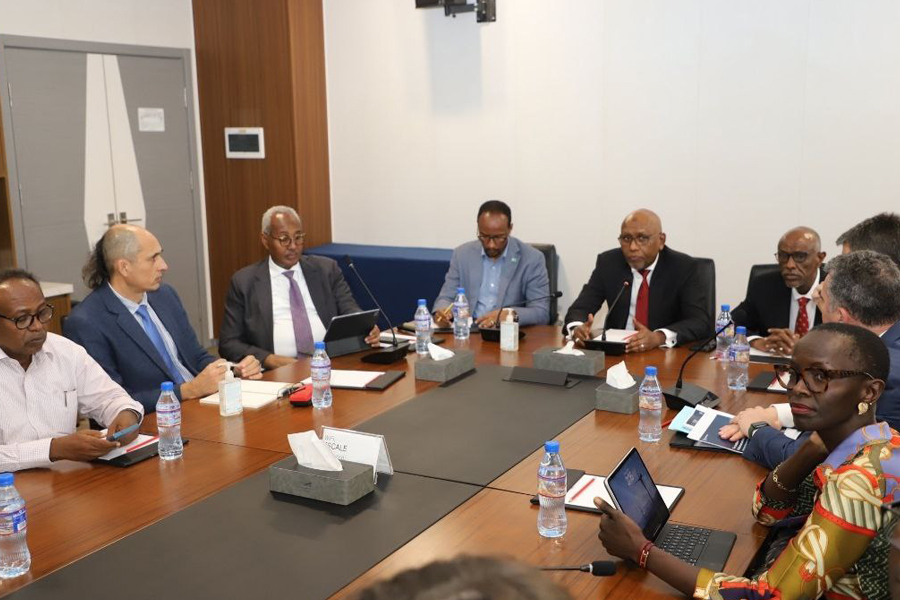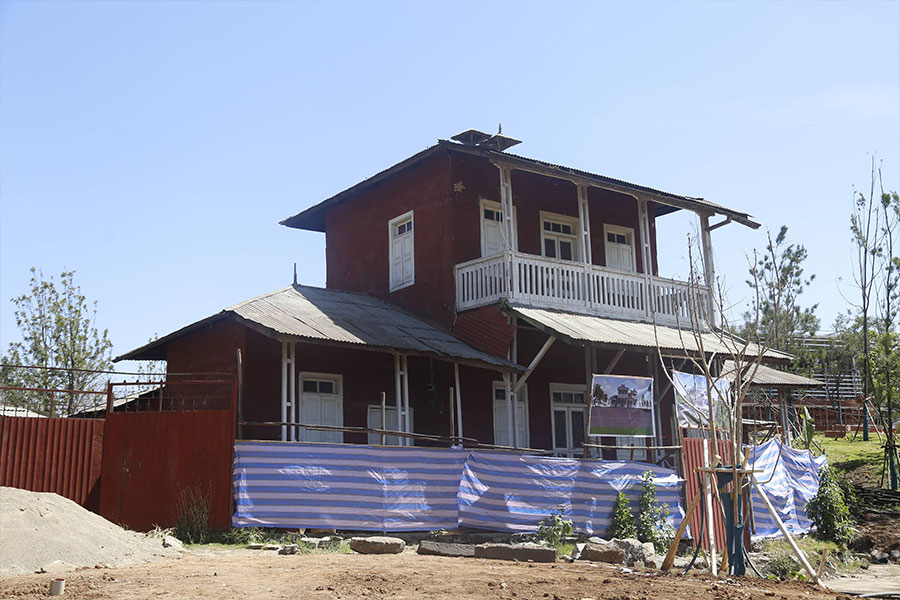
Fortune News | Jun 22,2024
Jul 24 , 2021
By Eden Sahle
It is not unheard of for adults to proudly declare that they never read books or articles of any length. There is, of course, a high rate of illiteracy, where nearly half the adult population can neither read nor write. But ironically, the culture of reading is held in apparent contempt for a country where extravagant ceremonies are thrown for university graduations.
This is harmful to the social, political, and economic challenges in Ethiopia. People with a wealth of experience are discouraged from even trying. No wonder then that we have only a handful of books that present the intricate history of the country with detail and nuance. The lack of an audience for literature and history is a disincentive to many. The scarcity of academic funding and grants for researchers to dedicate their time and resources to publishing does not encourage scholars either.
The result is that people turn to hearsay and social media, where often misguided and one-sided information circulates, worsening our political and social ills. As has been pointed out many times, social media feeds people information that they are already more likely to believe, making them even more biased on certain subject matters. More critically, it plays to people’s fears and resentments, the consequences of which are felt on streets with political violence.
Could these be the reason why as a nation we are spinning around circles, ignoring the lessons of our past mistakes? Could our problem be a lack of readers and writers that are honest with the stories they tell?
Books on our politics, society and the economy could offer a wealth of information on how we can navigate the predicaments of today and the future. They can be a great input for policy changes, development strategies and social tolerance.
How helpful would it have been, for instance, to have had a compilation of critically argued and well-researched literature on indigenous conflict resolution methods in addressing political violence instead of depending entirely on imported ideas from the West?
The practice of reading books creates cognitive engagement that improves communication, problem solving, skills and concentration. It also can create empathy, good social perception and emotional intelligence.
For Ethiopians, reading can help frame current events and occurrences in a more global and open-minded frame. It can also offer a way to escape the daily drudgery of living and help deal with people in our social context more maturely. Books that ignite our interest, in the economy, history, society and politics can be what is needed to create a more resilient society. Otherwise, we will be condemned to repeating our problems over and over.
There should be a culture of writing and reading, which is usually a sign of development. After all, writing and reading are not for the sole benefit of the reader or writer. A book can change the face of culture, the way we think or interact with one another, and raise awareness. It was, for instance, a highly institutive philosopher, Karl Marx, that nearly brought down the capitalist system of the world, armed with nothing but his pen and paper to write The Communist Manifesto and Das Kapital. It was also a single book, Silent Spring by Rachel Carson, that inspired movements and policies against pesticides and shone a light on their impact on the environment.
Accurate impartial information from books can resolve our collective problems and help us become resilient as a whole. Books that have depth and appreciate complex topics helps turn any discussion into more of an exchange of ideas and less of a barrage of conflicting noise. In our challenging socio-political environment, reading selectively and writing more thoughtfully could help deepen public intelligence, evidence-based conversation, and awareness of the past and present situations.
If people do not believe me, look no further to the top four nations that publish the most books annually: the United States, China, the United Kingdom and Japan.
PUBLISHED ON
Jul 24,2021 [ VOL
22 , NO
1108]

Fortune News | Jun 22,2024

Fortune News | Jan 29,2022

Life Matters | Jun 25,2022

Life Matters | Jan 27,2024

Commentaries | Jan 25,2020

Radar | Jul 29,2023

Sunday with Eden | Mar 27,2021

Life Matters | Apr 16,2022

Commentaries | Jun 08,2024

Sunday with Eden | Nov 07,2020

Photo Gallery | 178670 Views | May 06,2019

Photo Gallery | 168863 Views | Apr 26,2019

Photo Gallery | 159701 Views | Oct 06,2021

My Opinion | 137097 Views | Aug 14,2021
Commentaries | Oct 25,2025

Dec 22 , 2024 . By TIZITA SHEWAFERAW
Charged with transforming colossal state-owned enterprises into modern and competitiv...

Aug 18 , 2024 . By AKSAH ITALO
Although predictable Yonas Zerihun's job in the ride-hailing service is not immune to...

Jul 28 , 2024 . By TIZITA SHEWAFERAW
Unhabitual, perhaps too many, Samuel Gebreyohannes, 38, used to occasionally enjoy a couple of beers at breakfast. However, he recently swit...

Jul 13 , 2024 . By AKSAH ITALO
Investors who rely on tractors, trucks, and field vehicles for commuting, transporting commodities, and f...

Oct 25 , 2025
The regulatory machinery is on overdrive. In only two years, no fewer than 35 new pro...

Oct 18 , 2025
The political establishment, notably the ruling party and its top brass, has become p...

Oct 11 , 2025
Ladislas Farago, a roving Associated Press (AP) correspondent, arrived in Ethiopia in...

Oct 4 , 2025
Eyob Tekalegn (PhD) had been in the Governor's chair for only weeks when, on Septembe...

Oct 25 , 2025 . By YITBAREK GETACHEW
Officials of the Addis Abeba's Education Bureau have embarked on an ambitious experim...

Oct 26 , 2025 . By YITBAREK GETACHEW
The federal government is making a landmark shift in its investment incentive regime...

Oct 29 , 2025 . By NAHOM AYELE
The National Bank of Ethiopia (NBE) is preparing to issue a directive that will funda...

Oct 26 , 2025 . By SURAFEL MULUGETA
A community of booksellers shadowing the Ethiopian National Theatre has been jolted b...